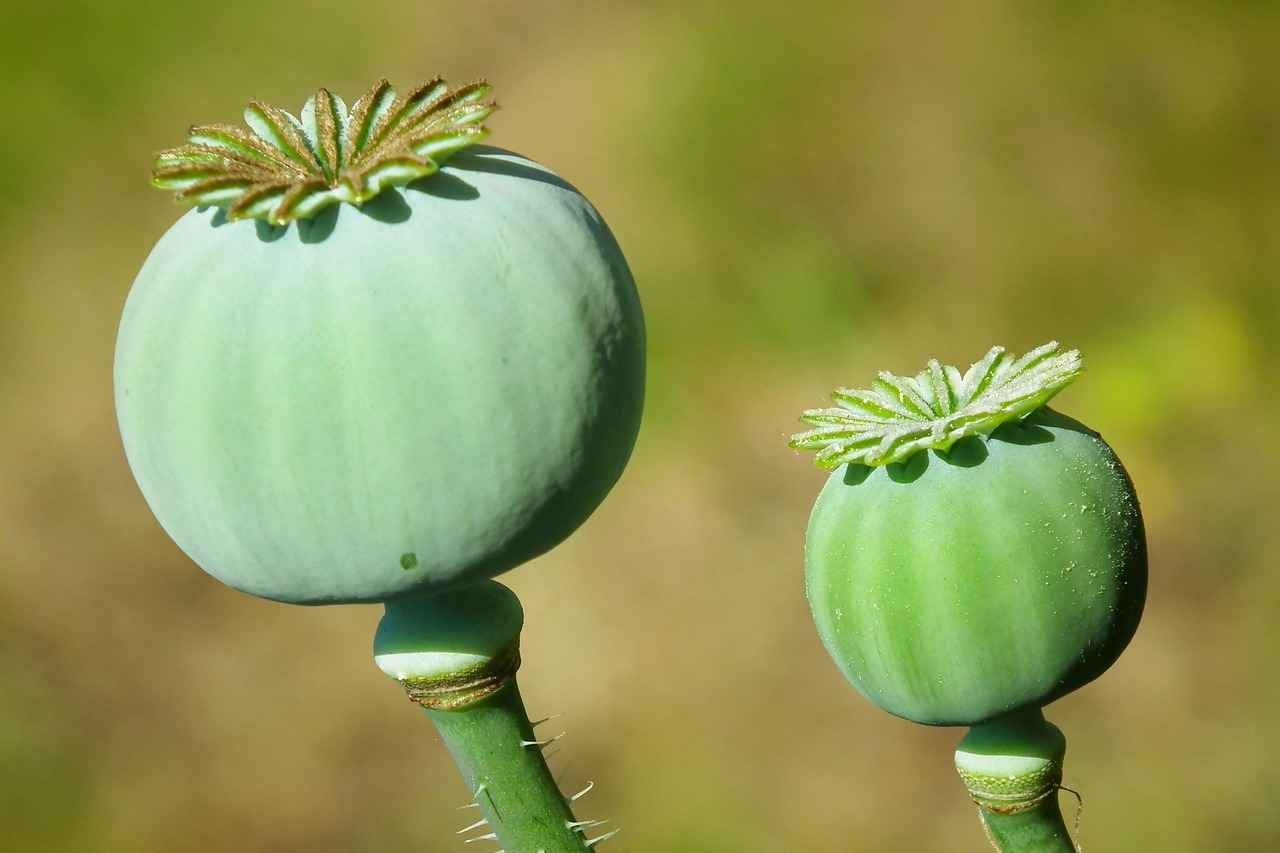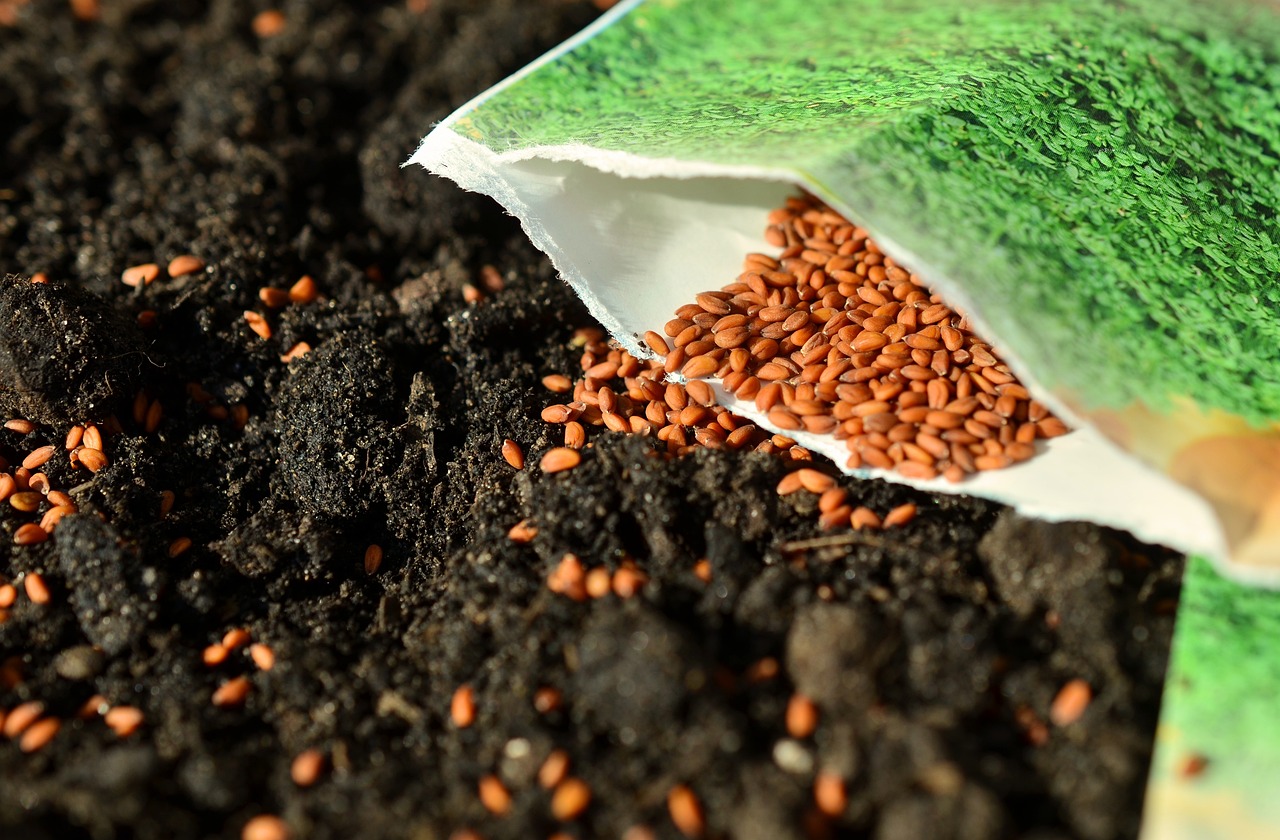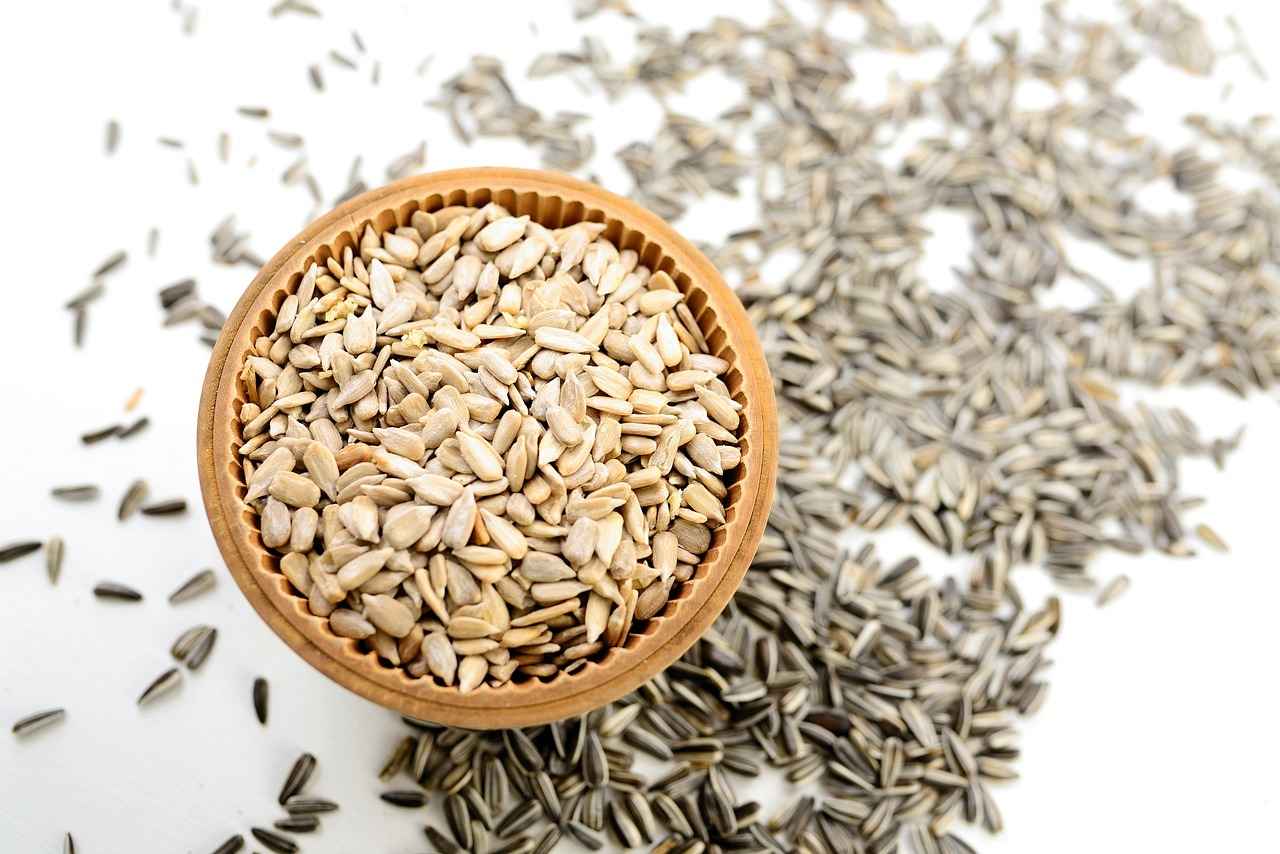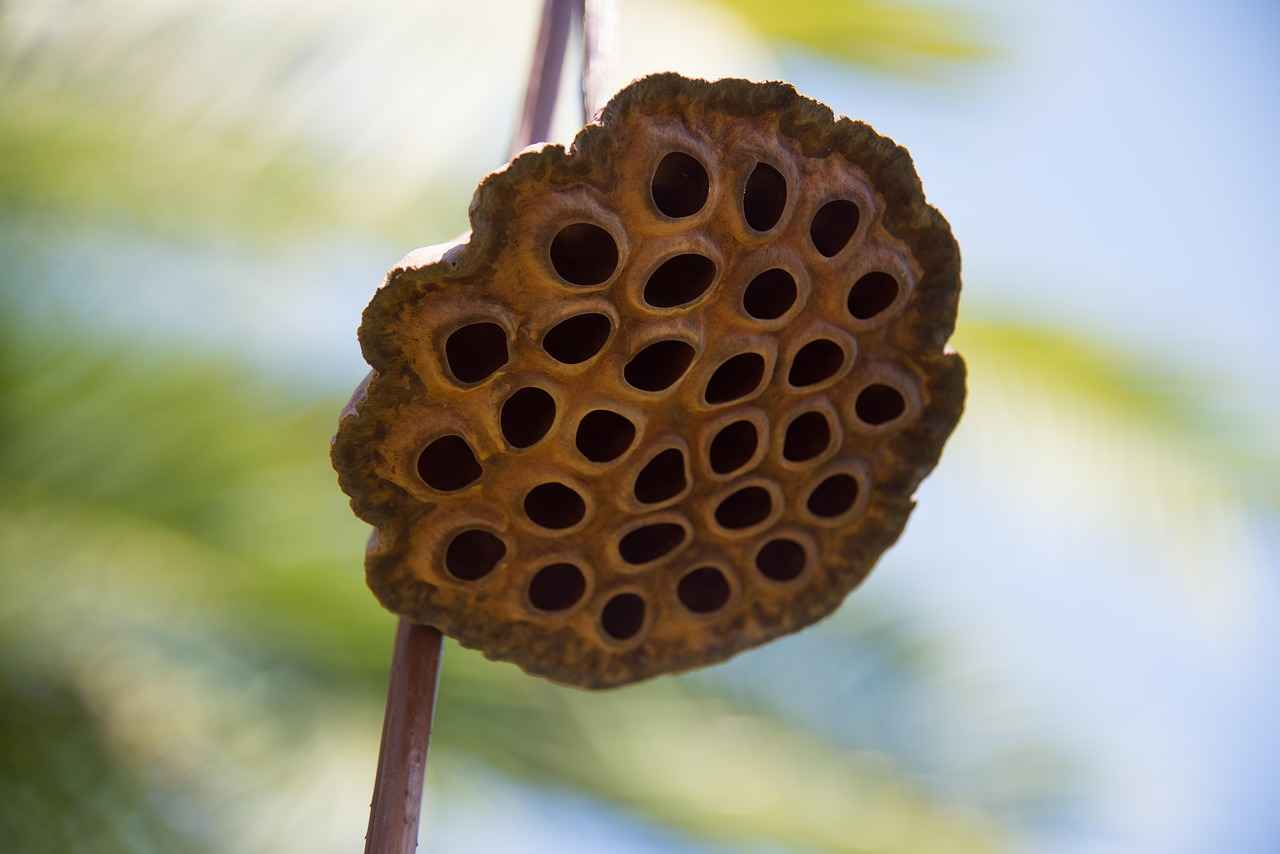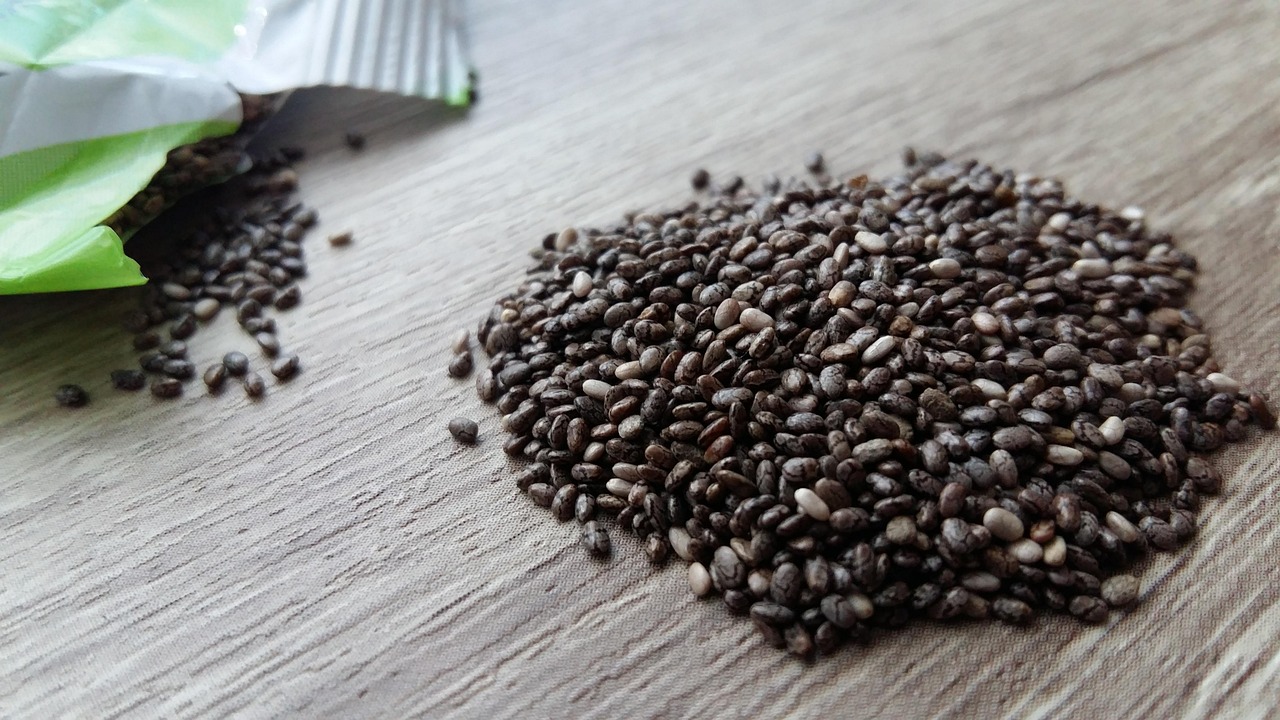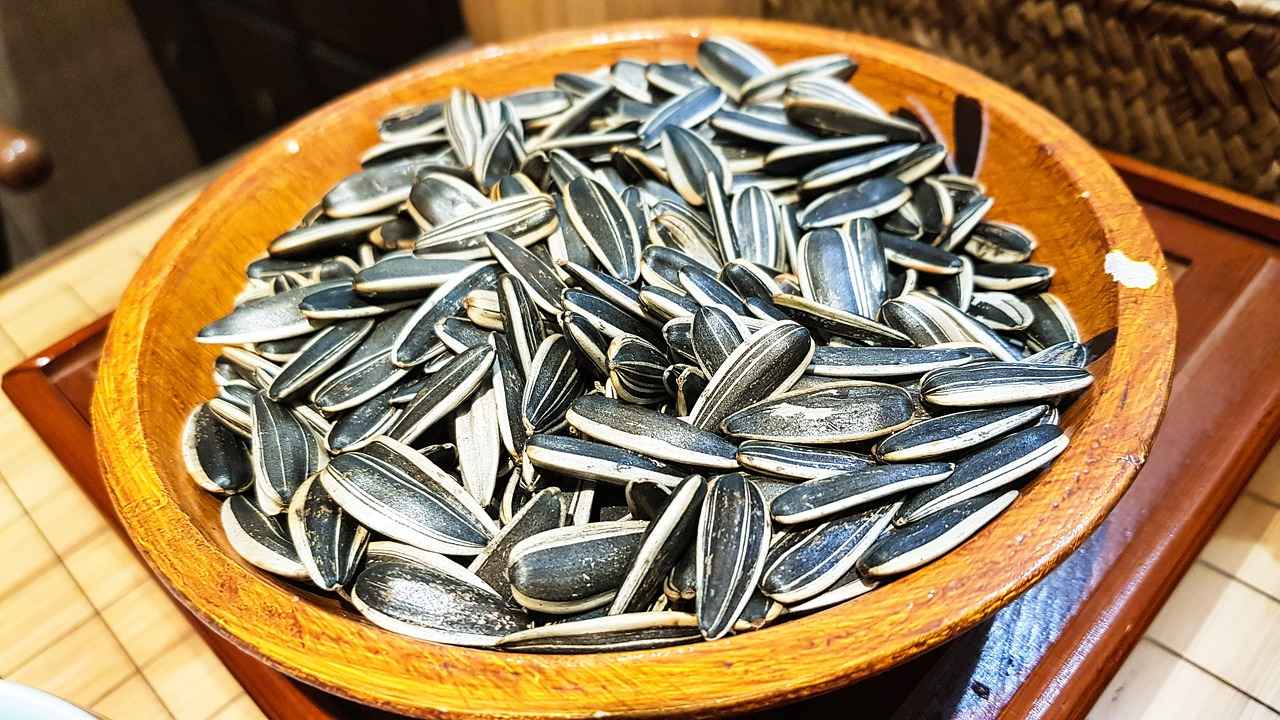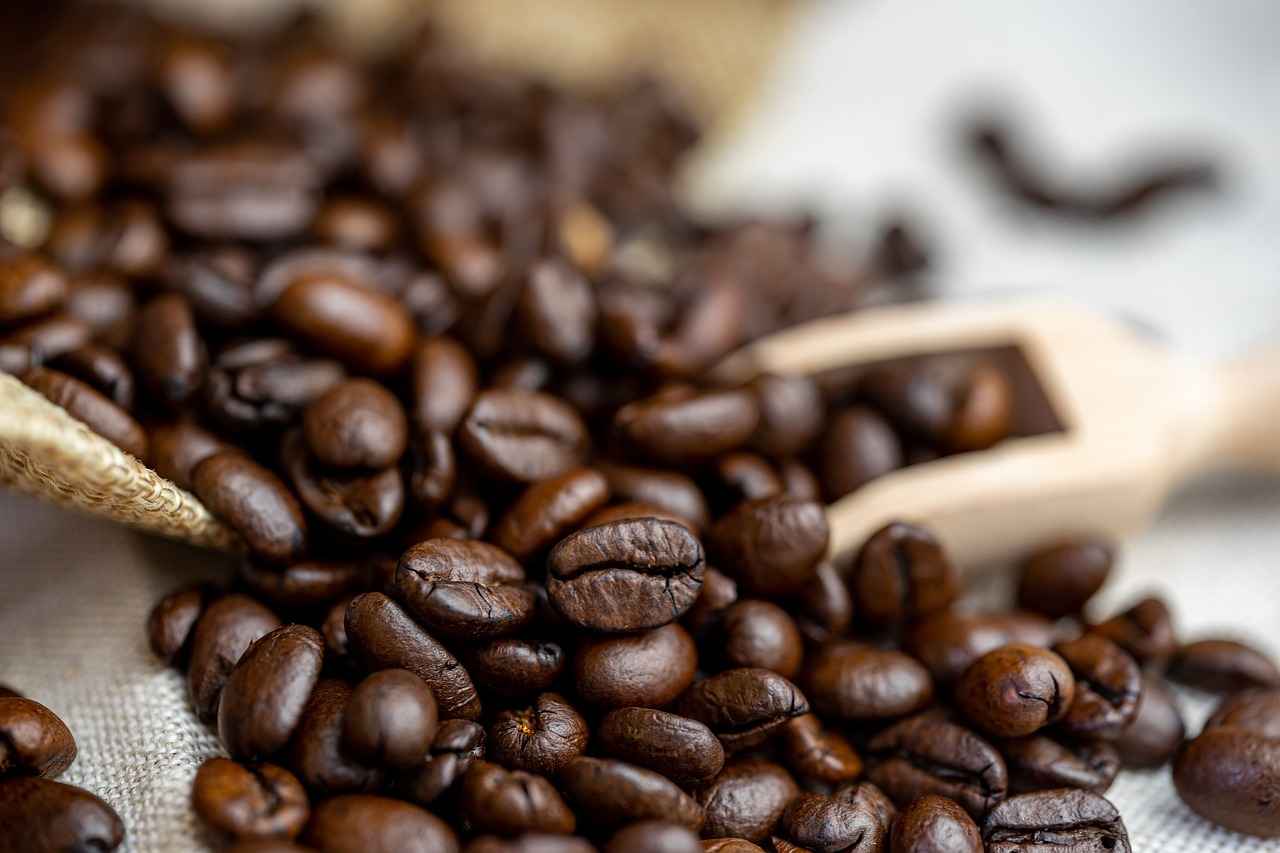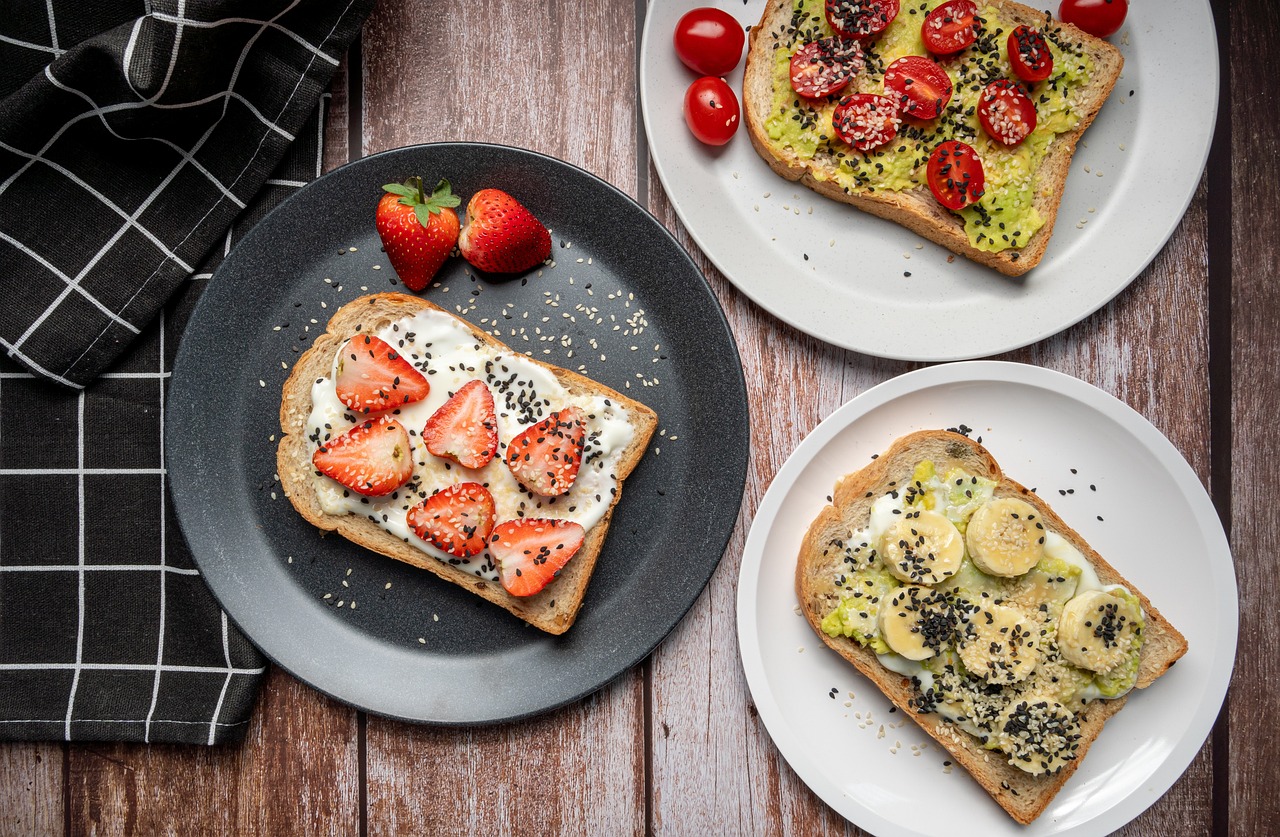Chia seeds and sweet basil seeds are two popular superfoods that have gained attention for their remarkable health benefits. This article delves into their nutritional profiles, uses, and potential health impacts, enabling you to make informed dietary choices.
Chia seeds are tiny black seeds derived from the Salvia hispanica plant. They are renowned for their rich nutritional content, including high levels of omega-3 fatty acids, fiber, and protein. Often incorporated into smoothies, puddings, and baked goods, chia seeds are celebrated for their versatility and health-promoting properties.
Also known as sabja or tukmaria, sweet basil seeds come from the basil plant and are cherished for their unique texture and health benefits. Commonly used in beverages and desserts, these seeds swell when soaked in water, forming a gel-like consistency that enhances both flavor and nutrition.
Understanding the nutritional profiles of chia seeds and sweet basil seeds is essential for evaluating their health benefits. Both seeds offer distinct advantages in terms of vitamins, minerals, and macronutrients.
- Omega-3 Fatty Acids: Essential for heart health.
- High Fiber Content: Supports digestive health.
- Protein: Aids in muscle repair and growth.
- Minerals: Rich in calcium, magnesium, and phosphorus.
- Fiber: Contributes to digestive health.
- Antioxidants: Help combat oxidative stress.
- Essential Fatty Acids: Support overall well-being.
Chia seeds offer numerous health benefits, including:
The soluble fiber in chia seeds promotes regular bowel movements and prevents constipation, making them an excellent choice for digestive health.
Rich in omega-3 fatty acids, chia seeds help lower cholesterol levels and reduce inflammation, contributing to overall heart health and a lower risk of cardiovascular diseases.
Sweet basil seeds provide unique health benefits, including:
When soaked in water, sweet basil seeds expand and form a gel-like consistency, promoting a feeling of fullness and aiding in hydration.
The gel-like texture of sweet basil seeds can help curb appetite, making them a popular choice for those looking to manage their weight.
Sweet basil seeds contain antioxidants that may help reduce inflammation in the body, potentially lowering the risk of chronic diseases.
Incorporating these seeds into your diet can enhance your nutritional intake. Here are some practical tips and recipes:
- Chia Pudding: Mix chia seeds with almond milk and let them sit overnight.
- Smoothies: Add chia seeds to your favorite smoothie for an extra nutritional boost.
- Baked Goods: Substitute chia seeds for eggs in vegan recipes.
- Beverages: Add soaked sweet basil seeds to lemonades or smoothies.
- Desserts: Incorporate them into puddings or yogurt for added texture.
- Salads: Sprinkle on salads for a crunchy element.
Both chia seeds and sweet basil seeds offer unique health benefits and can be easily added to your diet. By understanding their nutritional profiles and incorporating them into your meals, you can enhance your overall health.
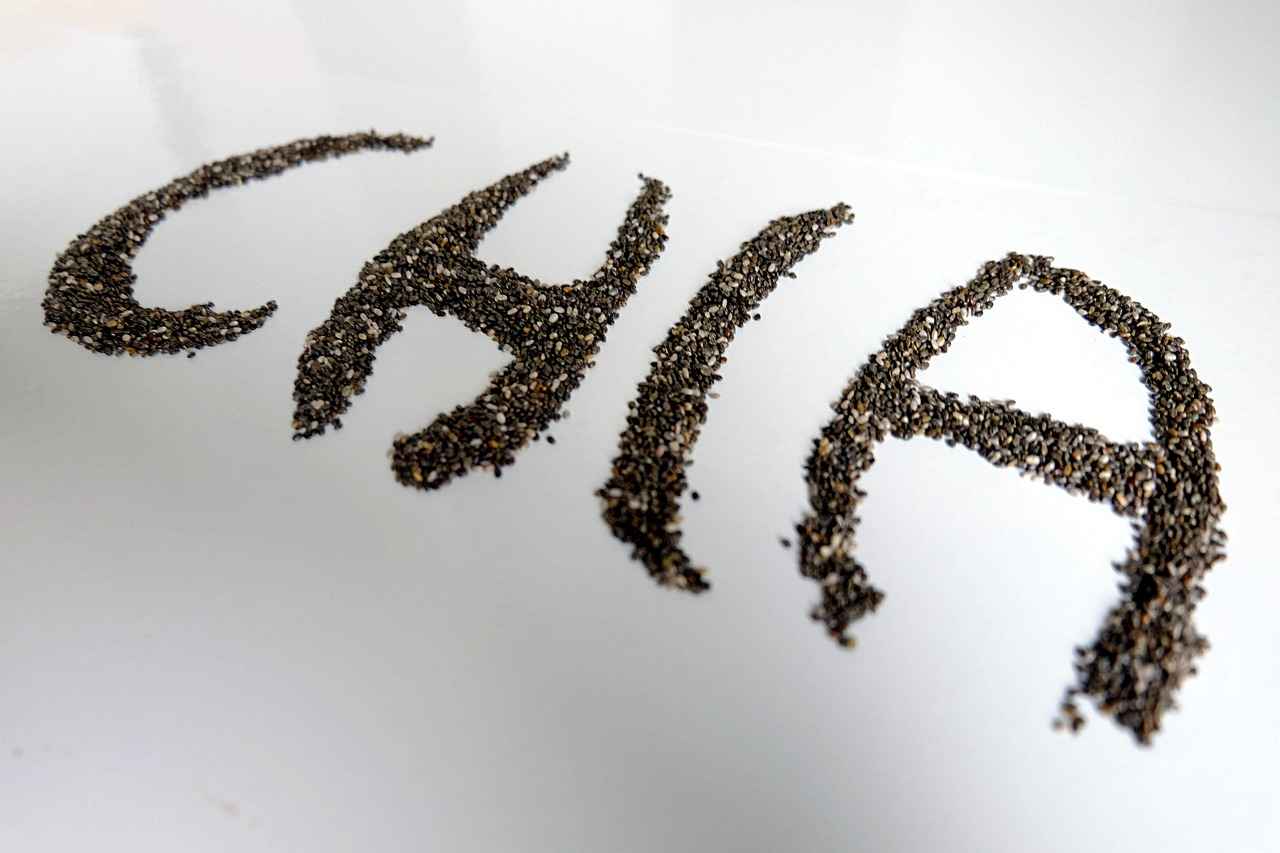
What Are Chia Seeds?
Chia seeds are small, nutrient-dense seeds harvested from the Salvia hispanica plant, which is native to Central America. These tiny black seeds have gained immense popularity in recent years due to their impressive health benefits and versatility in culinary applications. They are often hailed as a “superfood” because of their rich nutritional profile, making them an exceptional addition to a balanced diet.
Chia seeds are packed with essential nutrients, including omega-3 fatty acids, dietary fiber, protein, and various vitamins and minerals. Their unique ability to absorb water and expand in size makes them a popular choice for those looking to enhance their meals with added texture and nutrition. But what exactly makes them so beneficial?
- Omega-3 Fatty Acids: These healthy fats are crucial for heart health and brain function.
- Dietary Fiber: Chia seeds are an excellent source of fiber, promoting digestive health and aiding in weight management.
- Protein: They provide a plant-based protein source, making them a favorite among vegetarians and vegans.
- Vitamins and Minerals: Chia seeds are rich in calcium, magnesium, and phosphorus, essential for bone health.
The health benefits of chia seeds are vast. Here are some key advantages:
The high fiber content in chia seeds promotes regular bowel movements and aids in digestion. When consumed, they absorb water and form a gel-like substance, which can help to regulate the digestive process, making them an excellent choice for those suffering from constipation.
Rich in omega-3 fatty acids, chia seeds can help lower cholesterol levels and reduce inflammation, thus contributing to better heart health. Regular consumption may lower the risk of heart disease by improving overall cardiovascular function.
Chia seeds can help with weight management due to their high fiber content, which promotes a feeling of fullness. This can reduce overall calorie intake and support weight loss efforts.
Chia seeds may aid in stabilizing blood sugar levels, making them beneficial for individuals with diabetes. Their high fiber content slows the absorption of sugar, preventing spikes in blood glucose levels.
Incorporating chia seeds into your diet is simple and versatile. Here are some practical ways to enjoy their benefits:
- Smoothies: Add a tablespoon of chia seeds to your favorite smoothie for added nutrition.
- Puddings: Mix chia seeds with almond milk and let them sit overnight to create a delicious pudding.
- Baked Goods: Incorporate chia seeds into muffins, breads, or energy bars for a nutritious boost.
- Salads: Sprinkle chia seeds on salads for added crunch and nutrients.
Chia seeds are not only beneficial for health but also incredibly easy to incorporate into various dishes. Their mild flavor makes them a versatile ingredient that can enhance both sweet and savory meals.
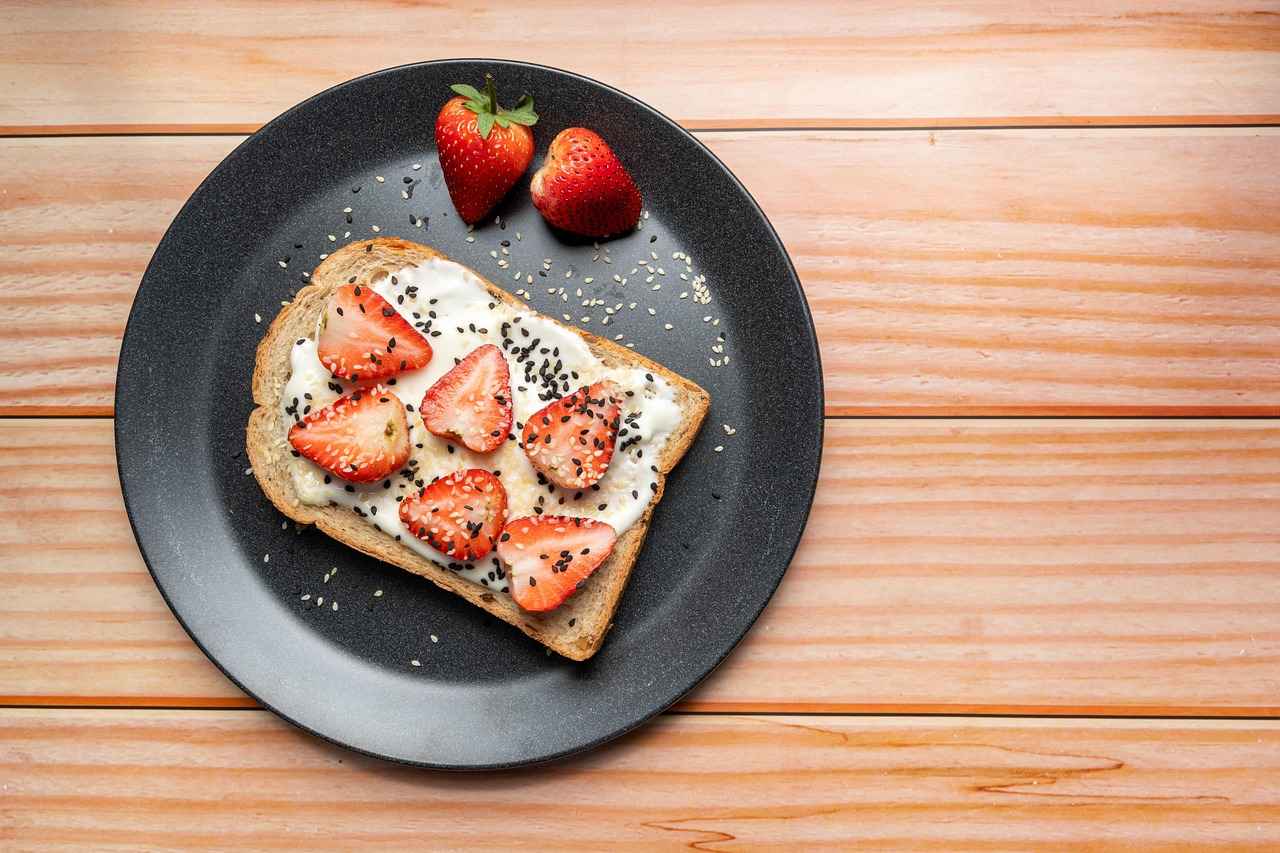
What Are Sweet Basil Seeds?
Sweet basil seeds, also known as sabja or tukmaria, are derived from the basil plant (Ocimum basilicum), which is widely recognized for its aromatic leaves and culinary uses. These seeds have gained popularity not only for their unique flavor but also for their impressive health benefits. They are particularly cherished in various cultures for their ability to enhance beverages and desserts.
When soaked in water, sweet basil seeds undergo a fascinating transformation. They absorb liquid and swell, forming a gel-like coating that is both intriguing and nutritious. This unique texture makes them a delightful addition to drinks like falooda and smoothies, where they add both visual appeal and health benefits.
Sweet basil seeds are rich in fiber, which plays a crucial role in digestive health. A single serving can provide a substantial amount of dietary fiber, aiding in regular bowel movements and contributing to a healthy gut. Additionally, they contain essential fatty acids, which are vital for overall health and well-being.
When compared to other seeds, such as chia seeds and flaxseeds, sweet basil seeds stand out due to their unique properties. While chia seeds are known for their high omega-3 content, sweet basil seeds offer a different set of benefits, including their hydrating properties and ability to promote a feeling of fullness. This makes them an excellent choice for those looking to manage their weight.
In culinary applications, sweet basil seeds are incredibly versatile. They can be used in a variety of dishes, including:
- Beverages: Adding soaked sweet basil seeds to drinks like lemonade or smoothies enhances texture and nutrition.
- Desserts: Incorporating them into puddings or ice creams can provide a unique twist and added health benefits.
- Salads: Sprinkling them over salads can add a crunchy texture and boost fiber content.
One of the standout features of sweet basil seeds is their ability to absorb water. When consumed, they can help keep the body hydrated, especially in hot climates. This property makes them a popular ingredient in summer drinks, where hydration is essential.
While sweet basil seeds are generally safe for most people, it’s important to consume them in moderation. Overconsumption can lead to digestive discomfort due to their high fiber content. It’s also advisable to soak them before consumption to prevent any potential choking hazard.
In summary, sweet basil seeds are a nutritious addition to a variety of dishes, offering unique health benefits and culinary versatility. Their ability to hydrate and promote fullness makes them particularly appealing for those looking to enhance their diet. Whether enjoyed in drinks, desserts, or salads, sweet basil seeds can elevate both the flavor and health quotient of your meals.
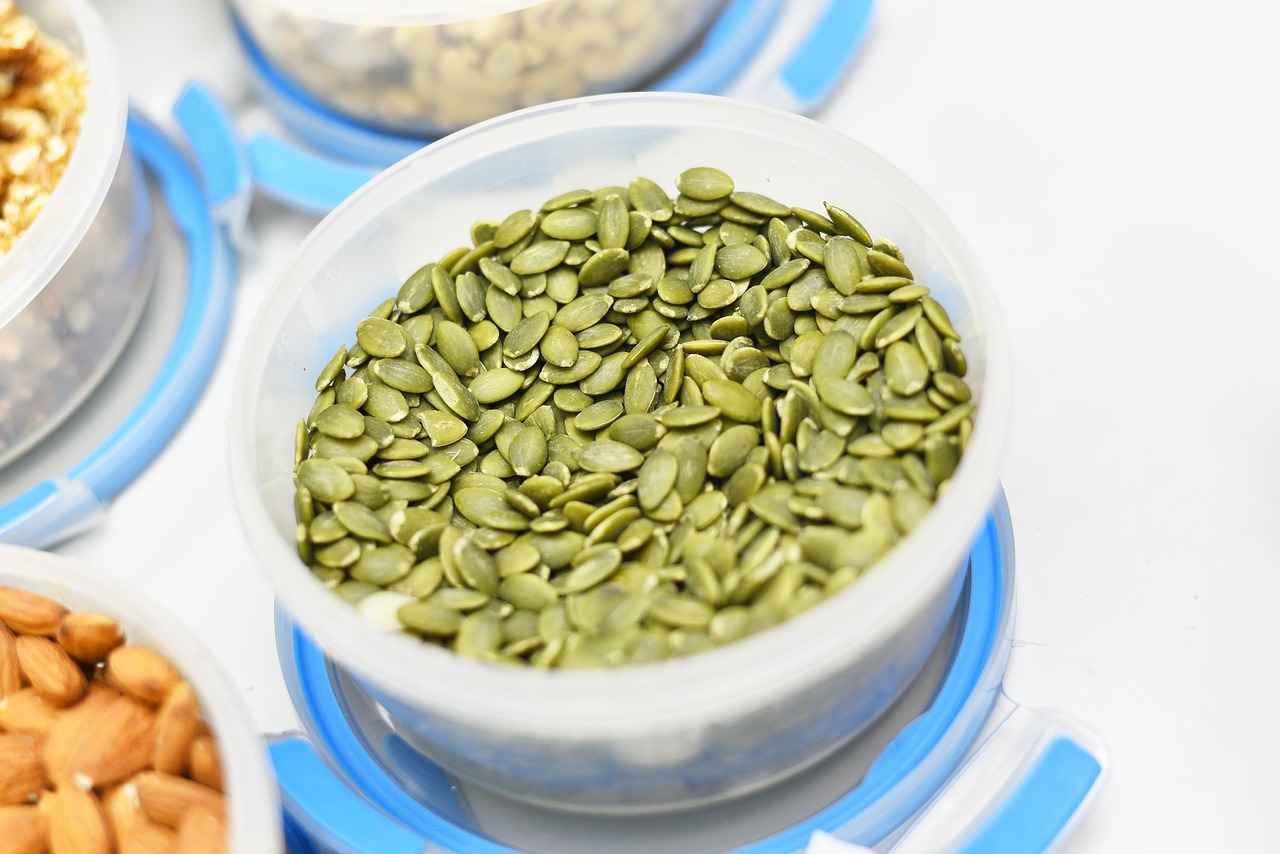
Comparative Nutritional Profiles
When it comes to incorporating nutritious seeds into your diet, understanding the of chia seeds and sweet basil seeds is essential. These tiny powerhouses not only enhance the flavor of dishes but also offer numerous health benefits. This article delves into the distinct nutritional aspects of both seeds, helping you make informed dietary choices.
Chia seeds are derived from the Salvia hispanica plant, native to Central America. These small, black seeds are celebrated for their high nutrient content, including protein, fiber, and omega-3 fatty acids. They have gained popularity in health circles due to their versatility and ease of incorporation into various recipes, from smoothies to baked goods.
Sweet basil seeds, often referred to as sabja or tukmaria, are harvested from the basil plant. These seeds are particularly valued for their unique properties, such as their ability to swell and form a gel-like substance when soaked in water. They are commonly used in beverages and desserts, adding both texture and nutritional benefits.
Understanding the nutritional profiles of chia seeds and sweet basil seeds is crucial for evaluating their health benefits. Both seeds offer distinct advantages in terms of vitamins, minerals, and macronutrients.
- Omega-3 Fatty Acids: Chia seeds are one of the richest plant sources of omega-3 fatty acids, which are essential for heart health.
- High Fiber Content: With approximately 10 grams of fiber per ounce, chia seeds support digestive health and promote satiety.
- Protein: They contain about 4 grams of protein per ounce, making them a great addition to vegetarian and vegan diets.
- Minerals: Chia seeds are rich in calcium, magnesium, and phosphorus, contributing to bone health.
- Fiber: Sweet basil seeds are also a good source of fiber, aiding in digestion and promoting a healthy gut.
- Antioxidants: These seeds are packed with antioxidants, which help combat oxidative stress and inflammation.
- Essential Fatty Acids: They provide healthy fats that are beneficial for overall health.
- Hydration: When soaked, sweet basil seeds absorb water, making them an excellent option for hydration.
Chia seeds are known for their numerous health benefits. Their high fiber content aids digestion, while the omega-3 fatty acids contribute to heart health. Regular consumption of chia seeds can help manage weight and reduce the risk of chronic diseases.
Sweet basil seeds provide unique health benefits, such as promoting hydration and aiding in weight management. Their gel-like consistency when soaked can help create a feeling of fullness, making them an excellent addition to weight-loss diets.
Both chia and sweet basil seeds can be easily incorporated into your daily meals. Consider adding chia seeds to your morning smoothie or oatmeal, and use sweet basil seeds in refreshing drinks or desserts. Their versatility allows you to enjoy their health benefits while enhancing the flavor of your favorite dishes.
Chia Seeds: Nutritional Highlights
Chia seeds, derived from the Salvia hispanica plant, have gained immense popularity due to their remarkable health benefits and versatile uses in various culinary applications. These tiny black seeds are not only a powerhouse of nutrition but also a fantastic addition to a balanced diet. Let’s delve deeper into the nutritional highlights of chia seeds and understand why they are a favorite among health enthusiasts.
Chia seeds are often hailed as a superfood because they are rich in essential nutrients that support overall health. Their unique composition includes:
- Omega-3 Fatty Acids: Chia seeds are one of the best plant-based sources of omega-3 fatty acids, which are crucial for brain health and reducing inflammation.
- High Fiber Content: With approximately 11 grams of fiber per ounce, chia seeds promote digestive health and help maintain a healthy weight.
- Complete Protein: Chia seeds contain all nine essential amino acids, making them an excellent protein source for vegetarians and vegans.
- Essential Minerals: They are packed with vital minerals such as calcium, magnesium, and phosphorus, which are important for bone health.
The health benefits of chia seeds extend beyond their nutritional profile. Here are some key advantages:
- Weight Management: The high fiber content in chia seeds absorbs water and expands in the stomach, promoting a feeling of fullness and reducing overall calorie intake.
- Heart Health: Omega-3 fatty acids found in chia seeds can help lower bad cholesterol levels and improve heart health.
- Improved Digestion: The soluble fiber in chia seeds aids in digestion by promoting regular bowel movements and preventing constipation.
- Bone Health: With their high calcium content, chia seeds contribute to maintaining strong bones and preventing osteoporosis.
Incorporating chia seeds into your daily meals is easy and versatile. Here are some practical suggestions:
- Smoothies: Add a tablespoon of chia seeds to your morning smoothie for an extra boost of nutrition.
- Puddings: Mix chia seeds with almond milk and a sweetener of your choice to create a delicious pudding.
- Baked Goods: Incorporate chia seeds into muffins, bread, or energy bars for added texture and nutrition.
- Salads: Sprinkle chia seeds on salads for a crunchy texture and additional health benefits.
While chia seeds are generally safe for most people, there are a few considerations to keep in mind:
- Hydration: Due to their high fiber content, it’s essential to drink plenty of water when consuming chia seeds to prevent digestive discomfort.
- Allergies: Some individuals may experience allergic reactions, so it’s advisable to start with small amounts.
In summary, chia seeds are a nutritious addition to any diet, offering a wealth of health benefits ranging from improved digestion to heart health. Their versatility in recipes makes them easy to incorporate into daily meals, ensuring you can enjoy their advantages effortlessly. Whether you blend them into smoothies or sprinkle them on salads, chia seeds can enhance your overall well-being.
Sweet Basil Seeds: Nutritional Highlights
Sweet basil seeds, also known as sabja or tukmaria, are not only a culinary delight but also a powerhouse of nutrition. These tiny seeds are derived from the sweet basil plant and are gaining popularity due to their numerous health benefits. In this section, we will delve into the nutritional highlights of sweet basil seeds, exploring their unique properties and how they can contribute to your overall health.
Sweet basil seeds are rich in several essential nutrients that can significantly enhance your diet. Here are some key components:
- Fiber: Sweet basil seeds are an excellent source of dietary fiber, which is crucial for maintaining a healthy digestive system. The fiber content aids in regular bowel movements and helps prevent constipation.
- Antioxidants: These seeds are packed with antioxidants that help combat oxidative stress in the body. Antioxidants play a vital role in reducing inflammation and lowering the risk of chronic diseases.
- Essential Fatty Acids: Sweet basil seeds contain omega-3 and omega-6 fatty acids, which are important for heart health and overall well-being.
- Vitamins and Minerals: They also provide a range of vitamins and minerals, including calcium, magnesium, and iron, which are essential for various bodily functions.
The high fiber content in sweet basil seeds makes them particularly beneficial for digestive health. When soaked in water, these seeds expand and form a gel-like substance, which can help:
- Promote Satiety: The gel-like consistency can create a feeling of fullness, which may aid in weight management by reducing overall calorie intake.
- Enhance Digestion: The soluble fiber helps to regulate bowel movements and can alleviate digestive issues such as bloating and constipation.
Another remarkable feature of sweet basil seeds is their ability to absorb water. When added to liquids, they can swell up to several times their original size, creating a refreshing beverage. This property not only makes them a popular ingredient in drinks but also helps:
- Maintain Hydration: Consuming sweet basil seeds can aid in keeping the body hydrated, especially during hot weather or after exercise.
- Support Weight Management: Their ability to expand in the stomach can help control appetite, making them a useful addition to weight loss diets.
Incorporating sweet basil seeds into your meals can be both fun and nutritious. Here are some practical ways to use them:
- In Beverages: Add soaked sweet basil seeds to smoothies, juices, or herbal teas for a nutritious boost.
- In Desserts: They can be sprinkled on puddings, yogurt, or fruit salads for added texture and health benefits.
- In Salads: Mix them into salads for an interesting crunch and nutritional enhancement.
In summary, sweet basil seeds are a versatile and nutritious addition to your diet. Their high fiber content, antioxidant properties, and ability to promote hydration make them a valuable ingredient for enhancing digestive health and overall well-being. Whether you use them in drinks, desserts, or savory dishes, these seeds can elevate your meals while contributing to a healthier lifestyle.
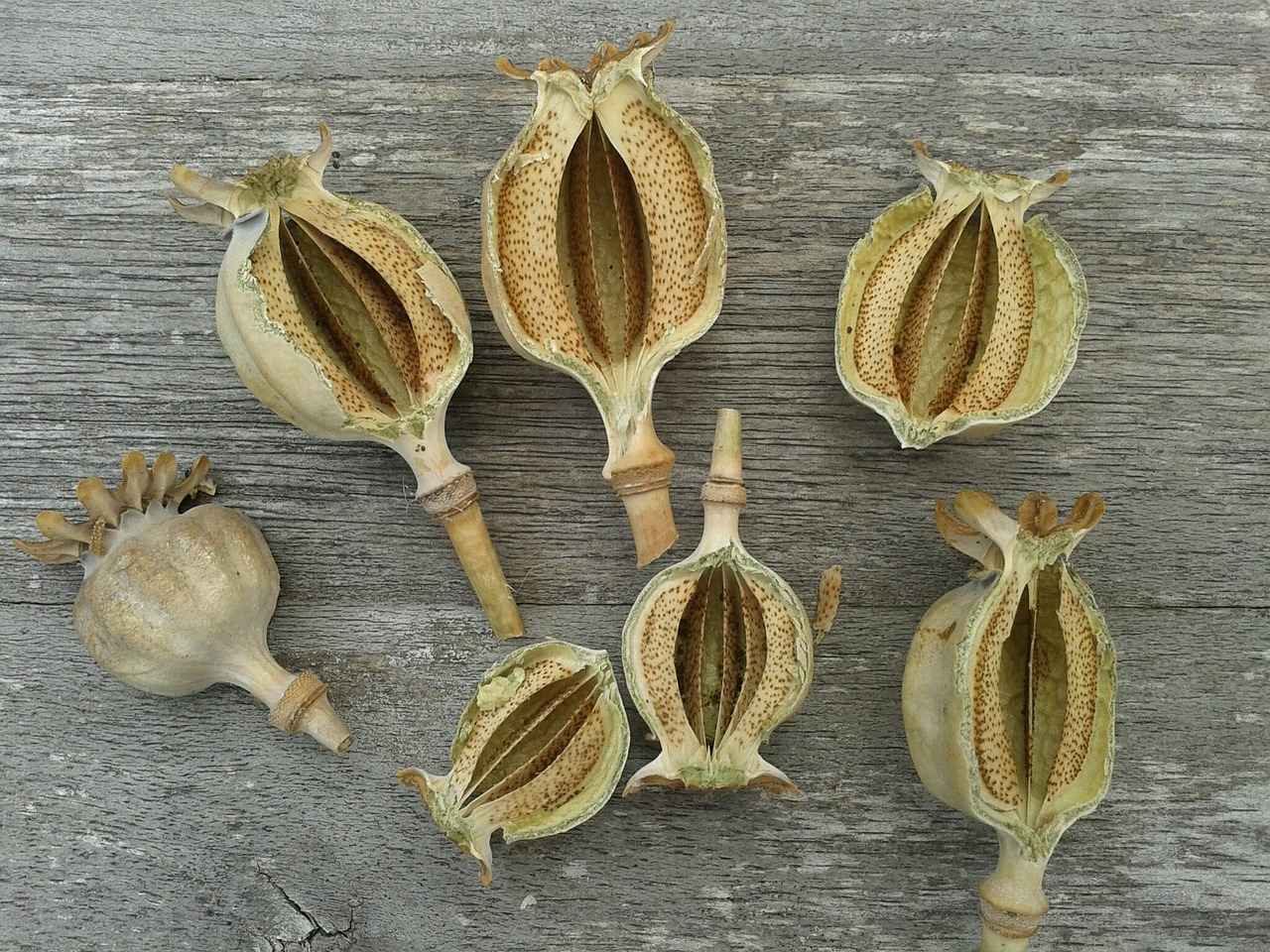
Health Benefits of Chia Seeds
Chia seeds have garnered significant attention in the health and wellness community, and for good reason. These tiny seeds, rich in nutrients and health-promoting properties, offer a multitude of benefits that can enhance your overall well-being. In this section, we will explore the , focusing on their impact on digestion, heart health, and weight management.
Chia seeds are loaded with essential nutrients, including omega-3 fatty acids, fiber, protein, and various vitamins and minerals. Their unique composition contributes to their numerous health benefits:
- Improved Digestion: The high fiber content in chia seeds, particularly soluble fiber, promotes digestive health by improving bowel regularity and preventing constipation. This fiber absorbs water, expanding in the stomach and providing a feeling of fullness.
- Heart Health: Rich in omega-3 fatty acids, chia seeds can help reduce inflammation and lower cholesterol levels. These properties are crucial for maintaining a healthy heart and reducing the risk of cardiovascular diseases.
- Weight Management: Chia seeds can be a valuable ally in weight management. Their ability to absorb liquid and form a gel-like substance can help you feel full longer, potentially reducing overall calorie intake.
The soluble fiber in chia seeds acts as a prebiotic, feeding the beneficial bacteria in your gut. This can lead to improved gut health and enhanced nutrient absorption. Additionally, the fiber helps to regulate blood sugar levels, making chia seeds a great option for those looking to manage their blood sugar.
Yes, chia seeds are known to support heart health significantly. The presence of alpha-linolenic acid (ALA), a type of omega-3 fatty acid, can help lower triglycerides and reduce blood pressure. Regular consumption of chia seeds may contribute to a healthier heart by reducing the risk factors associated with heart disease.
Absolutely! The unique property of chia seeds to absorb water and expand in the stomach can create a sense of satiety. This means that incorporating chia seeds into your meals can help control hunger and reduce cravings, making it easier to manage your weight effectively.
Incorporating chia seeds into your daily routine is simple and versatile. Here are some practical tips:
- Add chia seeds to your morning smoothie for an extra nutrient boost.
- Sprinkle them on salads or yogurt for added texture and health benefits.
- Use chia seeds to make puddings by soaking them in milk or a dairy alternative overnight.
- Incorporate them into baked goods, such as muffins or bread, for enhanced nutrition.
In conclusion, chia seeds are a powerhouse of nutrition with numerous health benefits, including improved digestion, heart health, and weight management. Their high fiber content and rich omega-3 fatty acid profile make them an excellent addition to any diet. By understanding and utilizing the benefits of chia seeds, you can enhance your overall health and well-being.
Digestive Health and Fiber
When it comes to maintaining a healthy digestive system, the role of fiber cannot be overstated. Among various sources of dietary fiber, chia seeds stand out due to their unique properties and health benefits. These tiny seeds, derived from the Salvia hispanica plant, are not only rich in nutrients but also offer significant advantages for digestive health.
The soluble fiber found in chia seeds plays a crucial role in promoting regular bowel movements and preventing constipation. This type of fiber absorbs water and forms a gel-like substance in the digestive tract, which helps to bulk up stool and facilitate its passage through the intestines. This process is essential for maintaining a healthy gut and ensuring that waste is efficiently eliminated from the body.
Regular bowel movements are vital for overall health. They help to prevent issues such as bloating, gas, and abdominal discomfort. Moreover, a well-functioning digestive system reduces the risk of more serious conditions, including diverticulitis and colorectal cancer. By incorporating chia seeds into your diet, you can support your body’s natural processes and promote a healthy digestive tract.
Chia seeds are exceptionally high in fiber, with approximately 10 grams of fiber per ounce (about 28 grams). This means that just a small serving can provide a significant portion of your daily fiber needs. For individuals looking to increase their fiber intake, chia seeds can be an excellent addition to meals.
- Chia Pudding: Combine chia seeds with your choice of milk or yogurt, let them soak overnight, and enjoy a nutritious breakfast or snack.
- Smoothies: Add a tablespoon of chia seeds to your favorite smoothie for an extra fiber boost.
- Baking: Incorporate chia seeds into baked goods such as muffins or bread for added texture and health benefits.
While many foods are rich in fiber, chia seeds offer unique benefits that set them apart. Unlike some other fiber sources, chia seeds are gluten-free and can be easily added to both sweet and savory dishes. Their ability to absorb liquid makes them versatile, as they can help thicken soups, sauces, and smoothies.
While chia seeds are generally safe for most people, it is essential to consume them in moderation. Due to their high fiber content, consuming too many chia seeds at once can lead to digestive discomfort, such as bloating or gas. It is advisable to start with a small amount and gradually increase your intake, ensuring you drink plenty of water to aid digestion.
In summary, chia seeds are a powerhouse of soluble fiber that can significantly enhance your digestive health. Their ability to promote regular bowel movements and prevent constipation makes them an excellent choice for anyone looking to improve their gut health. By incorporating chia seeds into your daily diet, you can enjoy the numerous benefits they offer while supporting your overall well-being.
Heart Health and Omega-3 Fatty Acids
Maintaining a healthy heart is essential for overall well-being, and incorporating omega-3 fatty acids into your diet can significantly contribute to this goal. Among various sources, chia seeds stand out due to their impressive nutritional profile and numerous health benefits. In this section, we will delve into how chia seeds can enhance heart health through their omega-3 content and other beneficial properties.
Omega-3 fatty acids are a type of polyunsaturated fat that plays a crucial role in heart health. They are known to reduce inflammation, lower blood pressure, and decrease triglyceride levels in the body. There are three main types of omega-3 fatty acids: ALA (alpha-linolenic acid), EPA (eicosapentaenoic acid), and DHA (docosahexaenoic acid). Chia seeds are an excellent plant-based source of ALA, making them a valuable addition to vegetarian and vegan diets.
- Lowering Cholesterol Levels: Regular consumption of chia seeds has been linked to improved cholesterol levels. The soluble fiber in chia seeds can bind to cholesterol in the digestive system, helping to eliminate it from the body.
- Reducing Inflammation: Chronic inflammation is a significant contributor to heart disease. The omega-3 fatty acids in chia seeds are known for their anti-inflammatory properties, which can help reduce the risk of heart-related issues.
- Improving Blood Pressure: Studies suggest that omega-3 fatty acids can help lower blood pressure, particularly in individuals with hypertension. This effect can be beneficial for maintaining healthy blood pressure levels.
- Enhancing Blood Vessel Function: Omega-3 fatty acids may improve the function of blood vessels, promoting better circulation and reducing the risk of arterial plaque buildup.
Incorporating chia seeds into your daily diet is simple and versatile. Here are some effective ways to enjoy their heart-healthy benefits:
- Add to Smoothies: Blend chia seeds into your favorite smoothies for an added nutritional boost.
- Mix into Yogurt: Stir chia seeds into yogurt or oatmeal for a nutritious breakfast or snack.
- Baking: Use chia seeds in baked goods, such as muffins or bread, to enhance their nutritional content.
- Chia Pudding: Create a delicious chia pudding by soaking chia seeds in almond milk or coconut milk overnight.
In summary, the inclusion of chia seeds in your diet can play a significant role in promoting heart health due to their rich omega-3 fatty acid content. By lowering cholesterol levels, reducing inflammation, and improving blood pressure, chia seeds offer a natural and effective way to support cardiovascular wellness. As you explore various ways to incorporate these tiny seeds into your meals, you will not only enhance your heart health but also enjoy a range of other nutritional benefits.

Health Benefits of Sweet Basil Seeds
Sweet basil seeds, often referred to as sabja or tukmaria, are gaining recognition for their remarkable health benefits. These tiny seeds, derived from the basil plant, are not only a culinary delight but also a powerhouse of nutrition. In this section, we will explore the various health benefits associated with sweet basil seeds, focusing on their unique properties that contribute to overall well-being.
Sweet basil seeds are packed with essential nutrients, making them a valuable addition to any diet. They are known for their high fiber content, which aids in digestion and promotes a healthy gut. Additionally, they are rich in antioxidants that help combat oxidative stress in the body.
One of the most notable benefits of sweet basil seeds is their ability to promote hydration. When soaked in water, these seeds swell and form a gel-like substance, which can help keep the body hydrated. This property makes them an excellent choice for those looking to maintain optimal hydration levels, especially in hot weather or after exercise.
Incorporating sweet basil seeds into your diet can aid in weight management. The gel-like consistency of the seeds creates a feeling of fullness, which can help curb overeating. By adding these seeds to meals or beverages, individuals may find it easier to manage their calorie intake without feeling deprived.
Sweet basil seeds are also believed to have anti-inflammatory properties. The antioxidants present in these seeds may help reduce inflammation in the body, potentially lowering the risk of chronic conditions such as heart disease and diabetes. This makes sweet basil seeds a valuable addition to an anti-inflammatory diet.
Integrating sweet basil seeds into your meals is simple and versatile. Here are some practical ways to enjoy their benefits:
- In Beverages: Add soaked sweet basil seeds to smoothies, juices, or herbal teas for a refreshing drink.
- In Desserts: Incorporate them into puddings or yogurt for added texture and nutrition.
- In Salads: Sprinkle soaked seeds over salads for an interesting twist and additional fiber.
Sweet basil seeds are a nutrient-dense food that offers a variety of health benefits, including hydration, weight management, and potential anti-inflammatory effects. Their unique properties make them a popular choice in many culinary applications. By incorporating sweet basil seeds into your diet, you can enhance your overall health while enjoying their delightful texture and flavor.
Hydration and Weight Management
When it comes to managing weight and staying hydrated, incorporating seeds into your diet can be a game changer. Sweet basil seeds, also known as sabja or tukmaria, have gained popularity for their unique properties that promote both hydration and a sense of fullness.
One of the most remarkable features of sweet basil seeds is their ability to absorb water. When these seeds are soaked, they can absorb up to 10 times their weight in water, creating a gel-like consistency. This property not only enhances hydration but also provides a refreshing texture in various dishes and beverages.
The gel-like consistency formed by sweet basil seeds when soaked helps in promoting a feeling of fullness. This satiating effect can be incredibly beneficial for those looking to manage their weight. By adding sweet basil seeds to your meals or drinks, you can curb your appetite and reduce the likelihood of overeating.
- In Beverages: Add soaked sweet basil seeds to smoothies, juices, or herbal teas for an added nutritional boost.
- In Desserts: Incorporate them into puddings or yogurt for a delightful texture and enhanced satiety.
- In Salads: Sprinkle them over salads to enhance fiber content and add a unique twist to your meal.
To maximize the benefits of sweet basil seeds, consider pairing them with other nutrient-dense foods. For example, combining them with fruits rich in vitamins and minerals can create a balanced meal. Additionally, incorporating them into meals with healthy fats, such as avocados or nuts, can further enhance their satiating effects.
Beyond hydration and weight management, sweet basil seeds are loaded with antioxidants, which can help combat oxidative stress in the body. They also contain essential fatty acids that contribute to overall health. Regular consumption can support digestive health due to their high fiber content, promoting regular bowel movements and preventing constipation.
While sweet basil seeds offer numerous health benefits, it’s important to consume them in moderation. Overconsumption can lead to digestive discomfort due to their high fiber content. Always ensure that you soak them in water before consumption to avoid any potential choking hazards.
In summary, sweet basil seeds are a versatile and nutritious addition to your diet. Their ability to promote hydration and induce a feeling of fullness makes them an excellent choice for weight management. By incorporating these seeds into your meals and beverages, you can enjoy their numerous health benefits while enhancing your overall dietary intake.
Potential Anti-Inflammatory Properties
When it comes to enhancing our health through diet, sweet basil seeds offer remarkable benefits that are often overlooked. These tiny seeds, known for their unique properties, are not just a culinary delight but also a powerhouse of health benefits. One of their most significant advantages is their .
Sweet basil seeds contain a variety of antioxidants that play a crucial role in combating inflammation within the body. Inflammation is a natural response to injury or infection, but chronic inflammation can lead to various health issues, including heart disease, diabetes, and arthritis. By incorporating sweet basil seeds into your diet, you may help mitigate these risks.
Among the many beneficial compounds in sweet basil seeds, flavonoids and polyphenols stand out. These antioxidants are known for their ability to neutralize free radicals—unstable molecules that can cause oxidative stress and contribute to inflammation. By fighting off these free radicals, sweet basil seeds can help maintain a balanced inflammatory response in the body.
- Soaked in Water: When soaked, sweet basil seeds expand and form a gel-like consistency, making them a refreshing addition to drinks.
- In Smoothies: Blend them into your smoothies for an added nutritional boost.
- In Desserts: Incorporate them into puddings or yogurt for a unique texture and health benefits.
Research has shown that the consumption of foods rich in antioxidants, such as sweet basil seeds, can lead to a reduction in markers of inflammation. For instance, a study published in the Journal of Nutrition highlighted that diets rich in flavonoids are associated with lower levels of inflammatory markers in the bloodstream.
In addition to their anti-inflammatory properties, sweet basil seeds are known for their digestive health benefits. They are rich in fiber, which aids in regular bowel movements and promotes gut health. Furthermore, their ability to absorb water can help you feel full longer, making them a great ally in weight management.
Incorporating sweet basil seeds into your diet not only adds texture and flavor to your meals but also provides a host of health benefits. Their make them a valuable addition for those looking to enhance their overall well-being. By understanding and utilizing the benefits of these seeds, you can make informed dietary choices that may lead to improved health outcomes.
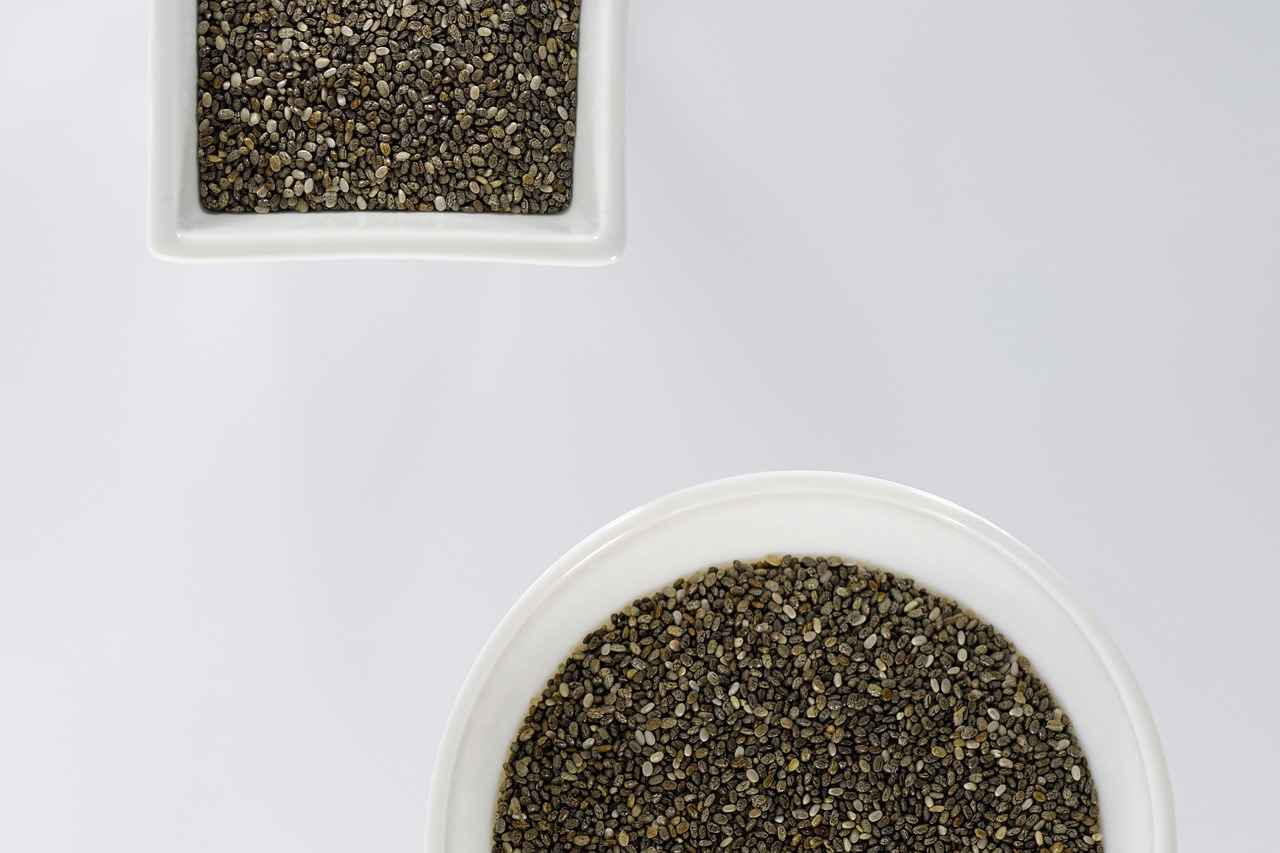
How to Incorporate Chia and Sweet Basil Seeds into Your Diet
Incorporating chia seeds and sweet basil seeds into your daily diet can significantly enhance your nutritional intake. These tiny powerhouses are not only packed with essential nutrients but also offer versatility in culinary applications. Below are some practical tips and delicious recipes to help you seamlessly integrate these seeds into your meals.
Chia seeds are a fantastic source of omega-3 fatty acids, fiber, and protein. Their ability to absorb liquid and form a gel-like consistency makes them perfect for thickening smoothies and puddings. Here are some easy ways to include chia seeds in your diet:
- Chia Pudding: Combine chia seeds with your choice of milk or a dairy alternative. Add sweeteners like honey or maple syrup and let it sit overnight. Top with fruits and nuts for a nutritious breakfast.
- Smoothies: Add a tablespoon of chia seeds to your favorite smoothie recipe. They will not only boost the nutritional value but also add a unique texture.
- Baked Goods: Incorporate chia seeds into muffins, bread, or pancakes. They can replace eggs in vegan recipes when mixed with water, providing a healthy binding agent.
Sweet basil seeds, known for their unique gel-like texture when soaked, offer hydration and digestive benefits. Here are some creative ways to use sweet basil seeds:
- Refreshing Drinks: Soak sweet basil seeds in water for about 30 minutes and add them to lemonades or fruit juices. They not only provide a refreshing texture but also help keep you hydrated.
- Desserts: Incorporate soaked sweet basil seeds into desserts like fruit salads or yogurt parfaits. Their unique appearance adds an aesthetic appeal while enhancing the dish’s health benefits.
- Salads: Sprinkle soaked sweet basil seeds over salads for added crunch and nutrition. They pair well with a variety of dressings and ingredients.
Both chia and sweet basil seeds can be used in various other recipes to maximize their health benefits:
- Energy Bars: Make homemade energy bars by mixing chia seeds or sweet basil seeds with oats, nut butter, and dried fruits.
- Soups and Stews: Add chia or sweet basil seeds to soups and stews for added thickness and nutrition without altering the flavor.
- Breakfast Bowls: Top your oatmeal or breakfast bowls with a sprinkle of chia or sweet basil seeds for added texture and health benefits.
Incorporating chia and sweet basil seeds into your diet is not only easy but also beneficial for your overall health. With their rich nutritional profiles and versatility, these seeds can enhance a variety of dishes while supporting your health goals. Experiment with different recipes and find what works best for you!
Recipes Using Chia Seeds
Chia seeds are not only a nutritional powerhouse but also a versatile ingredient that can enhance the flavor and texture of a variety of dishes. Their ability to absorb liquid and form a gel-like consistency makes them particularly useful in various recipes. Here are some creative ways to incorporate chia seeds into your meals:
- Chia Seed Pudding: Combine 1/4 cup of chia seeds with 1 cup of almond milk or any milk of your choice. Add a sweetener like honey or maple syrup, and flavor with vanilla extract. Let it sit in the refrigerator for at least 2 hours or overnight. Top with fresh fruits, nuts, or granola before serving.
- Chia Smoothies: Add 1-2 tablespoons of chia seeds to your favorite smoothie recipe. They blend well with fruits, greens, and yogurt, providing an added boost of fiber and omega-3 fatty acids. For a refreshing option, try a mango-banana smoothie with spinach and chia seeds.
- Chia Seed Jam: Create a healthy jam by mashing 2 cups of fresh or frozen berries and mixing them with 2 tablespoons of chia seeds and a sweetener of your choice. Let it sit for about 30 minutes until it thickens. This jam can be spread on toast or used as a topping for yogurt.
- Chia Seed Energy Bites: Combine 1 cup of oats, 1/2 cup of nut butter, 1/4 cup of honey, and 1/4 cup of chia seeds. Mix well, form into small balls, and refrigerate for 30 minutes. These bites make for a quick and nutritious snack.
- Chia Seed Bread: Incorporate chia seeds into your homemade bread recipes. Adding 1/4 cup of chia seeds to your dough not only boosts its nutritional profile but also enhances its texture. The seeds can also be sprinkled on top before baking for added crunch.
These recipes showcase the incredible versatility of chia seeds, allowing you to enhance both flavor and nutrition in your meals. Whether you’re looking for a quick breakfast, a snack, or a unique dessert, chia seeds can easily fit into your culinary repertoire.
Recipes Using Sweet Basil Seeds
When it comes to incorporating sweet basil seeds into your culinary repertoire, the possibilities are as diverse as they are delicious. These seeds, known for their unique texture and health benefits, can transform ordinary recipes into extraordinary creations. Below, we explore various ways to use sweet basil seeds in your meals.
Sweet basil seeds are often used in drinks, adding both texture and nutritional benefits. Here are a couple of popular drink recipes:
- Sweet Basil Seed Lemonade: Soak 2 tablespoons of sweet basil seeds in water for about 30 minutes. In a blender, combine the soaked seeds with freshly squeezed lemon juice, sugar or honey to taste, and cold water. Blend until well mixed and serve chilled.
- Fruit-Infused Basil Seed Drink: Mix soaked sweet basil seeds with your choice of fruit juice, such as mango or orange juice. Add pieces of fresh fruit and ice for a refreshing summer drink.
These seeds can also elevate your dessert game. Here are a few ideas:
- Basil Seed Pudding: Combine 1/4 cup of sweet basil seeds with 1 cup of coconut milk and 2 tablespoons of honey or maple syrup. Let it sit in the refrigerator for a couple of hours until it thickens. Serve chilled, topped with fresh fruits or nuts.
- Chia and Basil Seed Parfait: Layer chia seed pudding with sweet basil seeds in a glass. Alternate layers with yogurt and your favorite fruits for a visually appealing and nutritious dessert.
Adding sweet basil seeds to salads not only enhances texture but also boosts the nutritional profile. Consider these salad ideas:
- Fruit Salad with Basil Seeds: Toss together a mix of your favorite fruits, such as watermelon, pineapple, and berries. Sprinkle soaked sweet basil seeds on top for added crunch and health benefits.
- Quinoa Salad: Prepare a quinoa salad with chopped vegetables, herbs, and a dressing of olive oil and lemon juice. Add a tablespoon of soaked sweet basil seeds for an extra layer of flavor and nutrition.
Start your day off right by incorporating sweet basil seeds into your breakfast. Here are some ideas:
- Basil Seed Smoothie: Blend together a banana, a cup of spinach, a tablespoon of sweet basil seeds, and your choice of milk or yogurt for a nutrient-packed smoothie.
- Overnight Oats: Mix rolled oats with milk or yogurt, a tablespoon of sweet basil seeds, and your favorite sweetener. Let it sit overnight in the fridge and enjoy a quick, healthy breakfast in the morning.
In summary, sweet basil seeds are a versatile ingredient that can enhance a variety of dishes, from refreshing beverages to delicious desserts and nutritious salads. Their unique texture and health benefits make them a valuable addition to your cooking repertoire. Experiment with these recipes and discover the delightful ways sweet basil seeds can elevate your meals!
Frequently Asked Questions
- What are the main differences between chia seeds and sweet basil seeds?
Chia seeds are known for their high omega-3 fatty acid content, fiber, and protein, making them great for heart health and digestion. On the other hand, sweet basil seeds are valued for their unique texture and hydration properties, often used in beverages and desserts.
- Can I use chia seeds and sweet basil seeds interchangeably in recipes?
While they can sometimes be used interchangeably, it’s important to note their different textures and flavors. Chia seeds gel when soaked, while sweet basil seeds expand but retain a more crunchy texture. This means they may alter the final dish differently.
- How can I incorporate chia seeds into my diet?
Chia seeds are incredibly versatile! You can add them to smoothies, oatmeal, or yogurt, or even use them to make chia pudding. Their mild flavor makes them a great addition to both sweet and savory dishes.
- What are the health benefits of sweet basil seeds?
Sweet basil seeds are great for hydration due to their ability to absorb water and expand. They also offer potential anti-inflammatory benefits and can aid in weight management by promoting a feeling of fullness.
- Are there any side effects of consuming chia seeds?
Generally, chia seeds are safe for most people. However, consuming them in large amounts without adequate water can lead to digestive issues. It’s best to start with small servings and increase gradually.



